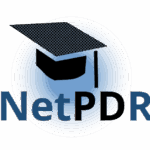Throwback: Insights into the Role of a Desk Officer in Public Service
At our recent Beyond the Postdoc lunch talk, we had the pleasure of welcoming Dr. Petra Born from the German Federal Ministry of Research, Technology and Space. The session provided insights into a career path that is often overlooked in academic circles but offers exciting opportunities for postdocs looking to apply their expertise in policy and administration. Below are some of the key questions discussed during the talk:
What kind of institutions in Germany employ desk officers?
Desk officer positions exist across a wide range of institutions, particularly in the public sector. At the federal and state level, desk officers work in ministries, government agencies, constitutional bodies, and the foreign service. They are also found in scientific and advisory institutions, such as project management agencies (Projektträger) or government-affiliated research institutes. Outside the traditional public sector, similar roles can be found in political parties, parliamentary groups, political foundations, international organizations (e.g., UN and EU institutions), as well as think tanks and NGOs.
What are typical tasks of a desk officer?
Desk officers are responsible for developing and implementing policies, managing programs, and serving as key coordinators between stakeholders. Their daily work may include drafting policy papers, preparing strategic documents and briefings, monitoring scientific and political developments, and representing their institution in working groups or international forums. In roles that require a high level of subject-matter expertise, such as in research ministries or science policy, desk officers with a PhD often help translate academic findings into practical policy advice.
What academic backgrounds do desk officers typically have?
Desk officers come from a broad spectrum of academic disciplines, depending on the policy area. In ministries and political institutions, common backgrounds include political science, law, economics, public administration, international relations but also science and life science. For more technical or research-related roles, degrees in engineering, environmental sciences, data science, health sciences, or education are in demand. Interdisciplinary profiles are especially valued when bridging the gap between research and policy.
What skills and competencies are essential for desk officers?
The role calls for a combination of analytical thinking, structured writing, and strategic communication. Desk officers must be able to quickly grasp complex topics and present them clearly in policy documents and briefings. Teamwork and coordination are equally important, as desk officers often liaise between different departments and external partners. For those with an academic background, the ability to translate scientific knowledge into actionable policy is a key asset. In most public service roles, proficiency in German is essential, particularly for engaging in legislative work and official communication.
How is the salary and flexibility in desk officer roles?
Desk officers in the public sector are paid according to standardized schemes such as TVöD or TV-L, usually starting at pay grade E13 for candidates with a degree or PhD. Roles often allow for flexible working arrangements, including part-time options, home office, and hybrid models, depending on the institution.





